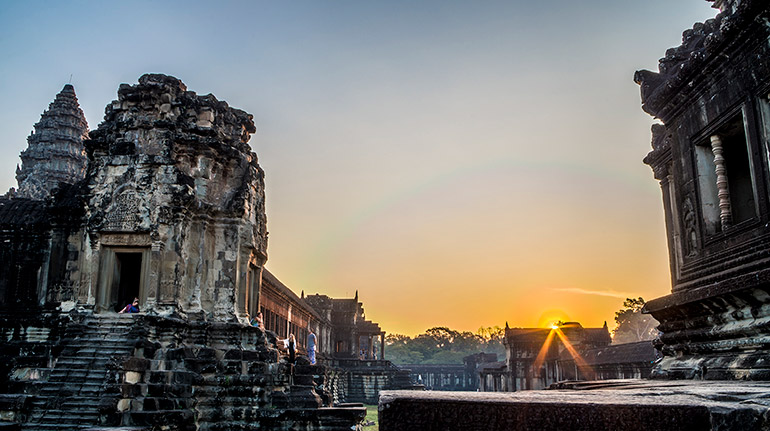Yoshiaki Ishizawa began researching the famed temples of Angkor long before they become one of the world’s most visited tourist attractions. In 1980, when his restoration work began, the war-ravaged country was still occupied by Vietnam and remained off-limits to much of the world.
When the country reopened to the world following the signing of the landmark Paris Peace Agreement in 1991, he opened the Asia Center for Research and Human Development in Siem Reap to train conservationists.
His five decades of assistance helping Cambodia survey, protect, and restore the ruins that continue to be at the heart of the country’s national identity were rewarded this week with a Ramon Magsaysay Award, according to the organizers of the foundation that hands out what has been called ‘Asia’s Nobel’.
Fellow winners included Gethsie Shanmugam, a Sri Lankan teacher who counselled war widows and orphans, Tony Tay, a Singaporean businessman who started an initiative to provide meals to thousands of the country’s poor and a Philippine theatre group that spoke out against dictatorship and other social ills.
Carmencita Abella, president of the Ramon Magsaysay Award Foundation, said the winners “have refused to give up despite meager resources, daunting adversity and strong opposition. Their approaches are all deeply anchored on a respect for human dignity and a faith in the power of collective endeavor.”
The foundation said Ishizawa had earned the award for “his selfless, steadfast service to the Cambodian people, his inspiring leadership in empowering Cambodians to be proud stewards of their heritage, and his wisdom in reminding us all that cultural monuments like the Angkor Wat are shared treasures whose preservation is thus also our shared global responsibility.”
Ishizawa, who wrote numerous books in Japanese on the Angkor temples and history of the empire, downplayed his own role in restoring the ruins, according to the Magsaysay organisation. “The protection and restoration of the sites of Cambodia should be carried out by the Cambodians, for the Cambodians,” he said.
The scholar obtained a Bachelor’s degree in 1961 in French Language and Studies from Japan’s Sophia University, where he would return in 2005 – after receiving a doctorate in oriental history from Chuo University and becoming a preeminent scholar on Angkor – to serve as its president for six years.
Perhaps his most well-known English-language book was Along the Royal Roads to Angkor, which contained mostly photographs of the ruins and a summary of the histories of the empires and god-kings that built them.


